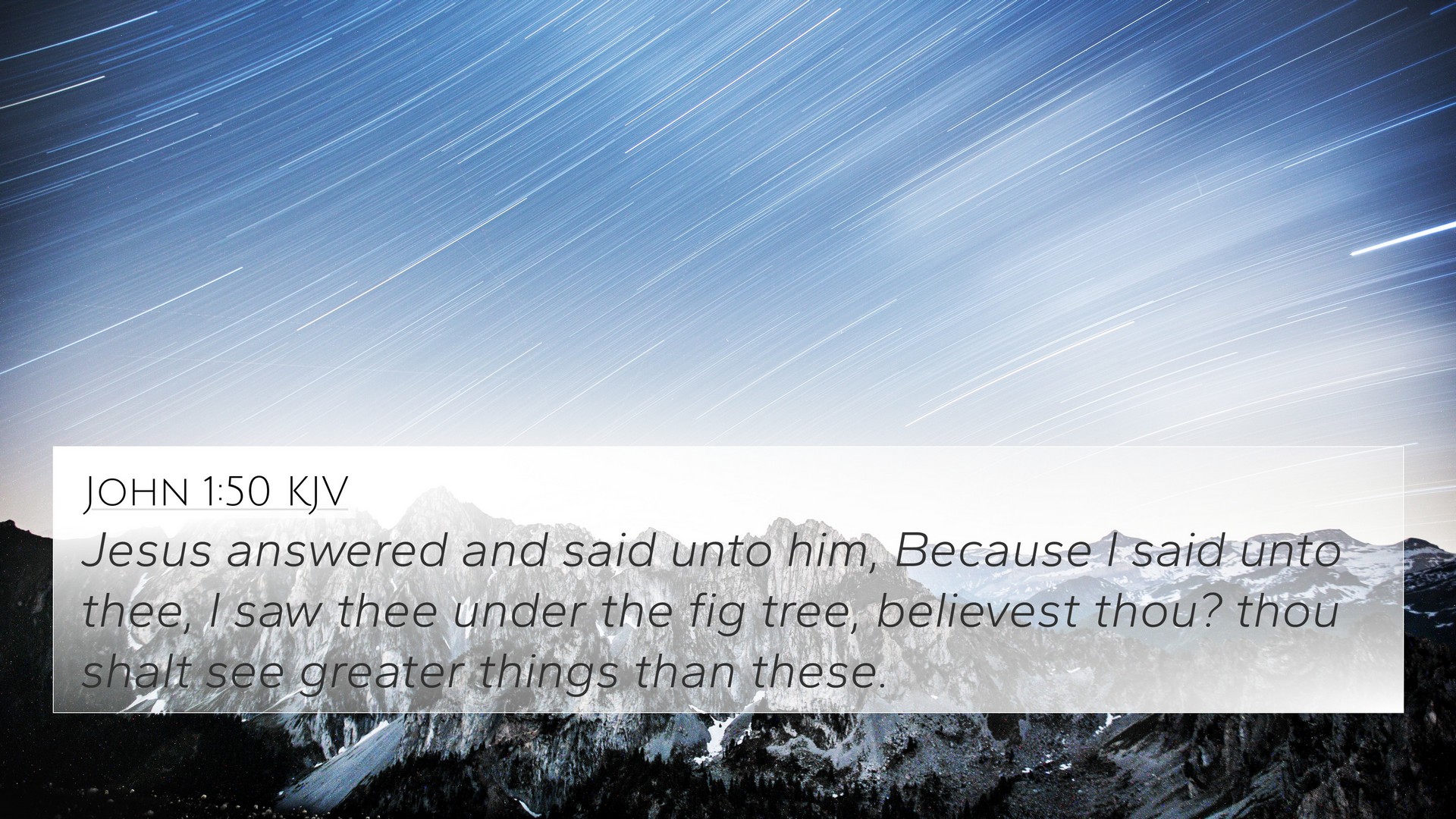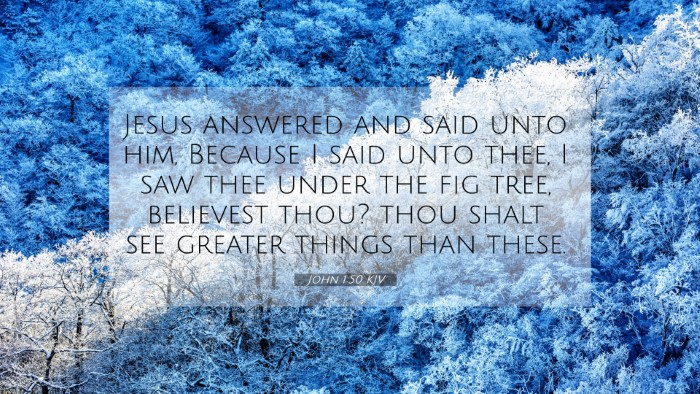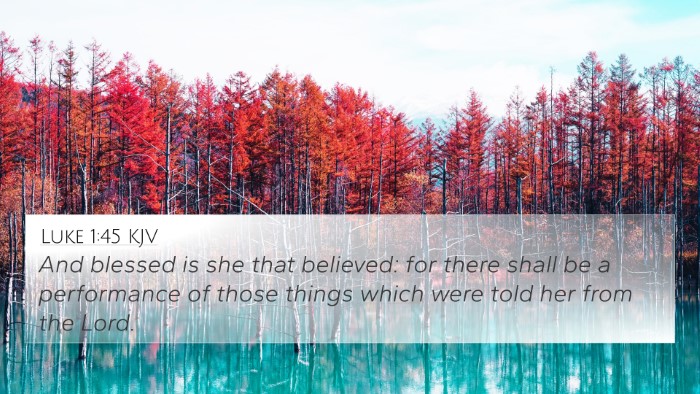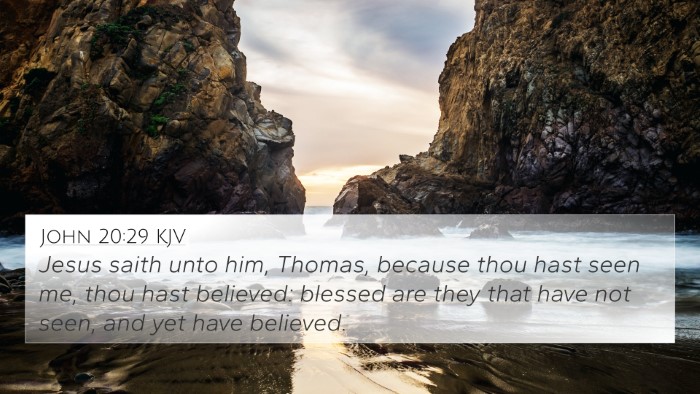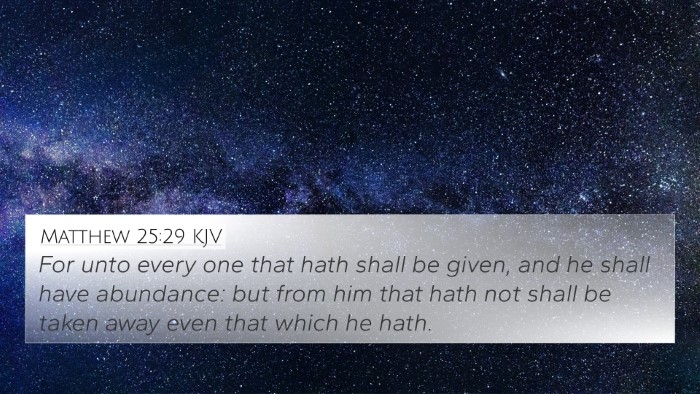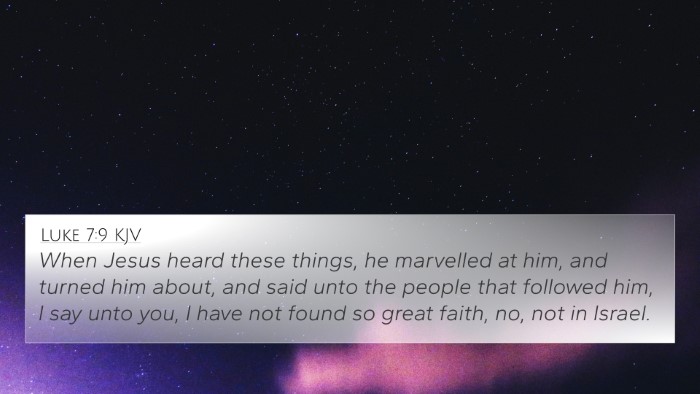Understanding John 1:50
John 1:50 presents profound insights rooted in the dialogue between Jesus and Nathanael. In this verse, Jesus responds to Nathanael's declaration of belief with the statement:
"Because I said to you, 'I saw you under the fig tree,' do you believe? You will see greater things than these." (John 1:50, ESV)
Verse Meaning and Interpretation
This verse encapsulates a significant moment of revelation, exploring themes of faith, revelation, and expectation in the life of a believer. Below are interpretations from various public domain commentaries:
- Matthew Henry: Henry emphasizes that Jesus' words draw Nathanael beyond a mere acknowledgement of supernatural knowledge to a greater revelation of divine truth. It signifies an invitation to deeper faith and greater manifestations of God's glory.
- Albert Barnes: Barnes explains that the "greater things" pertain to future revelations and works that Jesus would perform, particularly in relation to the miracles and teachings that would unfold during His ministry.
- Adam Clarke: Clarke reflects on the symbolic use of the fig tree, representing a place of contemplation and connection with God. He underscores that Nathanael's faith, sparked by what Jesus knew, would be deepened as he witnesses Jesus' divine authority and miraculous works.
Thematic Connections and Cross-References
To enhance the understanding of John 1:50, several cross-references and related verses can illuminate the themes of faith and revelation:
- John 14:12: "Truly, truly, I say to you, whoever believes in me will also do the works that I do; and greater works than these will he do..." - This connects to the theme of believing in the works of Jesus that manifest greater faith.
- John 2:11: "This, the first of his signs, Jesus did at Cana in Galilee, and manifested his glory. And his disciples believed in him." - This verse refers to the miracles that would strengthen believers' faith.
- Matthew 4:24: "So his fame spread throughout all Syria, and they brought him all the sick, those afflicted with various diseases and pains..." - Here, Jesus exhibits His glory through miracles, which invites a similar faith response as seen with Nathanael.
- Matthew 17:20: "For truly, I say to you, if you have faith like a grain of mustard seed, you will say to this mountain, 'Move from here to there,' and it will move..." - Echoes the faith concept introduced in John 1:50.
- Hebrews 11:1: "Now faith is the assurance of things hoped for, the conviction of things not seen." - This aligns with the nature of Nathanael's faith and the greater things Jesus omits.
- Acts 2:43: "And awe came upon every soul, and many wonders and signs were being done through the apostles." - A fulfillment of the very promise of greater works among believers.
- John 3:16: "For God so loved the world, that he gave his only Son..." - Essential to the belief system that Nathanael was invited into, emphasizing faith and the promise of salvation through Jesus.
Conclusion
John 1:50 serves as a pivotal verse that challenges believers to deepen their faith and anticipate the greater revelations of God’s kingdom through Christ. By understanding the inter-textual relationships and themes within the Bible, one can enrich their spiritual walk and appreciation for the Scriptures.
Further Study and Cross-Referencing Tools
For those seeking to delve deeper into Bible verse connections, consider utilizing:
- Bible Concordance: A tool that provides a systematic arrangement of biblical words and references for study.
- Bible Cross-Reference Guide: Resources that categorize verses thematically and contextually for comparative analysis.
- Cross-Reference Bible Study: Methods that encourage examining verses alongside each other to uncover deeper meanings.
By employing these tools, one can develop a comprehensive understanding of the relationships among various Bible verses, enriching their study of John 1:50 and beyond.
